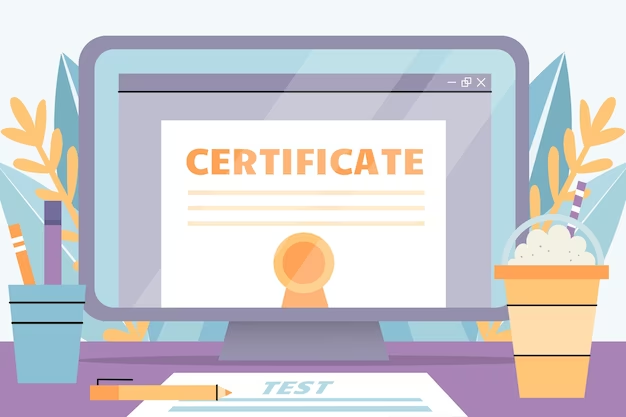As the backbone of secure internet browsing, SSL (Secure Sockets Layer) certificates are non-negotiable for any website that values the privacy and security of its users. At its core, SSL is a protocol that encrypts information sent between a user’s browser and a website, ensuring that sensitive data like passwords, credit card information, and personal details remain confidential. In this article, we delve into the intricacies of SSL, explore why SSL certificates have become crucial for websites, and highlight the checks and tools available for maintaining a secure online environment.
Understanding SSL Certificates
SSL certificates are digital certificates that authenticate the identity of a website and enable an encrypted connection. They are issued by a trusted third party, known as a Certificate Authority (CA). When a user visits a secure website using SSL, they will see ‘https://’ precede the web address, with the ‘s’ standing for ‘secure.’ A visible padlock icon or a green address bar might also indicate that SSL protection is in place. But how do SSL certificates actually work? When a user connects to a website with SSL, a unique encrypted channel is created using a handshake process, ensuring that all data transferred remains private and secure.

Why SSL Certificates Are Essential
In today’s digital landscape, having an SSL certificate is not just an added layer of security; it’s a fundamental component of website credibility and user trust. Here are two key reasons why SSL certificates are essential:
- Encryption: SSL certificates encrypt the data exchanged between a user and a website, which means that even if intercepted, the information remains unreadable to anyone except the intended recipient.
- Authentication: They provide proof that the website is what it claims to be, protecting users from falling victim to phishing attacks where fraudulent websites mimic legitimate ones.
SSL certificates also positively impact a website’s SEO ranking. Search engines, like Google, prioritize websites with SSL certificates, considering them more secure and trustworthy, which can ultimately increase a website’s visibility and traffic.
The Checks and Tools for Maintaining SSL Security
To ensure your website’s SSL certificate is performing correctly, regular checks are vital. These checks could encompass the following:
- Validity: Regularly verifying that your SSL certificate is up-to-date and hasn’t expired.
- Configuration: Using tools to check that your SSL setup is configured properly and doesn’t contain vulnerabilities.
- Compatibility: Ensuring that your SSL certificate is compatible with various browsers and devices to prevent access issues for users.
These important checks can be carried out using a range of freely available online tools. Websites like ‘SSL Labs’ by Qualys, for instance, can run a deep analysis of your SSL configuration and grade it accordingly. By regularly using such tools, you can stay ahead of potential security issues, providing a safer browsing experience for your users.
Types of SSL Certificates
| Certificate Type | Use Case | Validation Level |
|---|---|---|
| Domain Validation (DV) | Ideal for blogs and personal websites | Basic domain check |
| Organization Validation (OV) | Suited for organizations and businesses | Checks organization identity |
| Extended Validation (EV) | Best for e-commerce and sites handling sensitive transactions | Thorough vetting of the business |

Integrating SSL Certificates into Your Website
Integrating SSL certificates into a website is a straightforward process that significantly enhances its security. Firstly, a website owner must choose the appropriate type of SSL certificate, as mentioned earlier. After purchasing the certificate from a reputable Certificate Authority (CA), the next step involves generating a Certificate Signing Request (CSR) on the server, which includes the website’s public key and important information about your company and website. Once the CA validates the request and issues the certificate, it must be installed on the server. Finally, website configurations may need to be updated to ensure all connections default to HTTPS, and redirections from HTTP are correctly set up.
The Cost Aspect of SSL Certificates
SSL certificates come with varying price tags, based on the level of validation and the features they offer. Costs can range from free for basic Domain Validation certificates, provided by organizations like Let’s Encrypt, to several hundred dollars per year for more comprehensive Extended Validation certificates. It’s worth noting that:
- Free SSL certificates can be an excellent option for small websites and those just starting out, or for personal blogs that do not handle sensitive transactions.
- Paid SSL certificates often come with additional features such as increased warranty, customer support, and enhanced trust indicators, which can be valuable assets for professional and commercial websites.
It’s essential to consider the trade-offs between cost and the needs of your website when choosing an SSL certificate.
Future of SSL
The future of SSL is evolving towards even stronger encryption and user privacy. Given the increasing sophistication of cyber threats, future SSL protocols will need to provide more robust security measures. The industry is also moving toward automating the lifecycle of SSL certificate issuance and renewal, reducing the administrative burden and minimizing the risk of human error. Moreover, there could be a significant move towards adopting quantum-resistant algorithms as researchers are working towards encryption that could withstand quantum computing threats.

Conclusion
Conclusively, SSL certificates serve as trust anchors in the realm of online security, and their proper integration, maintenance, and understanding are paramount for businesses and individuals alike. By leveraging SSL, websites can safeguard user data, ensure transactional security, and foster trust in an increasingly digital world. With the progressive strides in encryption technology and the commitment to user privacy, the role of SSL certificates will only grow more significant in the years to come.
FAQs About SSL Certificates
Q: How often do SSL certificates need to be renewed?
A: SSL certificates are typically issued for a validity period of one to two years. Once expired, they need to be renewed to maintain the secure connection. Some providers offer auto-renewal services to simplify the process.
Q: Can SSL certificates be transferred between servers?
A: Yes, if you change your hosting provider or server, you can transfer your SSL certificate. It involves exporting the certificate from the old server and importing it into the new one, along with the corresponding private key.
Q: Are SSL certificates required for all websites?
A: While not technically mandatory, SSL certificates are highly recommended for all websites. Even non-e-commerce sites benefit from SSL through enhanced security and improved SEO rankings.
Q: Does an SSL certificate improve website speed?
A: SSL/TLS encryption can marginally increase the time it takes to establish a connection due to the SSL handshake process. However, with modern optimization techniques and HTTP/2 protocol, which requires SSL, encrypted sites can load just as fast or even faster than non-secure sites.
Q: What happens if my SSL certificate expires?
A: If an SSL certificate expires, browsers will display a security warning to users attempting to visit the website, indicating that the site is not secure. This can deter visitors and potentially harm the website’s reputation.
